5 Voice Search Optimization Strategies You Need to Know
Voice-enabled speakers like Google Home and Amazon Echo have become a significant part of consumers’ everyday lives. According to research from eMarketer, almost 75 million people in the United States will use smart speakers in 2019. And, nearly three-fourths of those users will use their smart speakers to conduct general searches. This rising usage makes voice search optimization an increasingly important effort for marketers.
Smart speaker penetration and activity in the United States
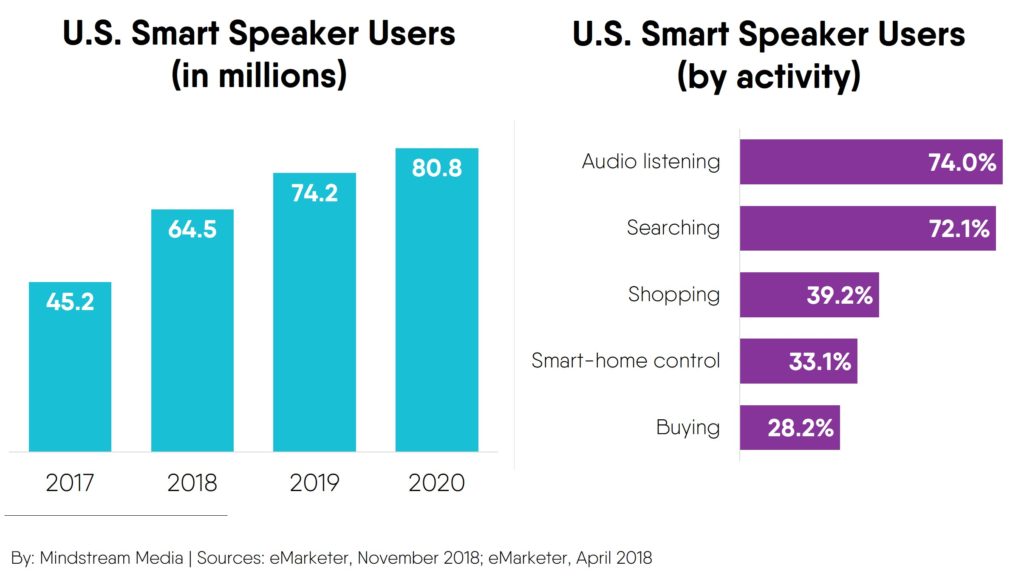
Related content: [Infographic] – Smart Speakers: The Rise of the Machines
By optimizing content for voice searches, brands can position themselves to show up in “position zero” (i.e., the only result in smart speaker searches). But smart speakers and voice search haven’t been around for long and brand marketers are still trying to figure out the best way to optimize their content.
Last year, Backlinko conducted a study to find the most important ranking factors for searches on the Google Home smart speaker. Here are five of the most critical findings from the study to help your brand amplify your voice search optimization efforts.
No. 1: Google Home favors pages with fast load times
This factor shouldn’t be too shocking since voice searchers are naturally going to value quick, accurate answers. According to Backlinko, the average voice search page loads in 4.6 seconds (roughly half the time as average webpages).
Page load time: voice search results vs. average webpage
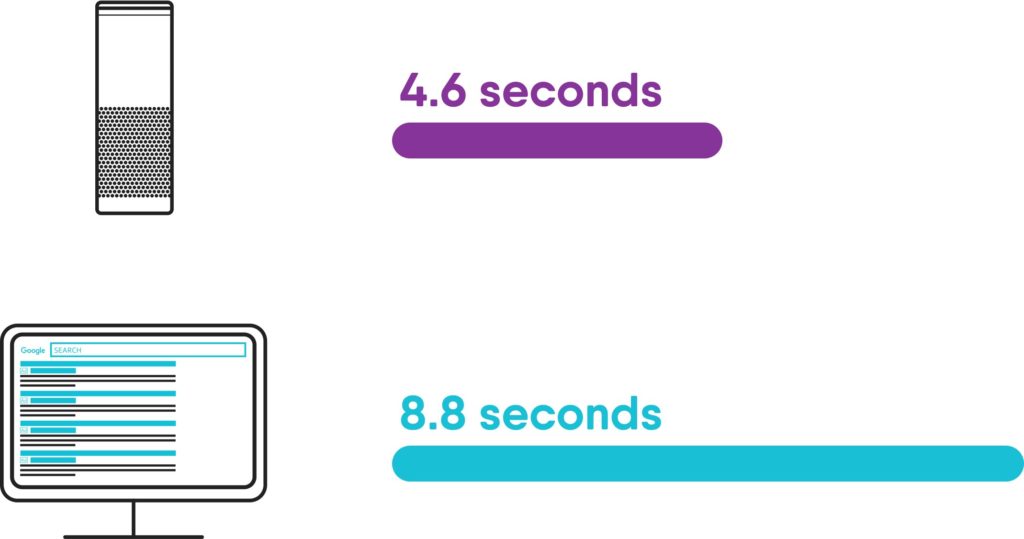
Remember, while mobile and desktop search results might list multiple results, smart speakers only provide one. This reality makes voice search optimization on smart speakers a zero-sum game.
Make sure to give your content a chance of reaching “position zero” by speeding up your webpages. Check out this post to learn how to identify page speed and other common SEO issues: How to Conduct a High-level SEO Audit.
No. 2: Google Home opts for more authoritative domains when delivering search results
Pages with higher domain scores (a metric for determining a webpage’s quality and authority) tend to perform much better in smart speaker searches. According to the study, the mean Ahrefs domain rating of a Google Home result is almost 77 percent.
The average domain authority of voice search result pages vs. average webpages
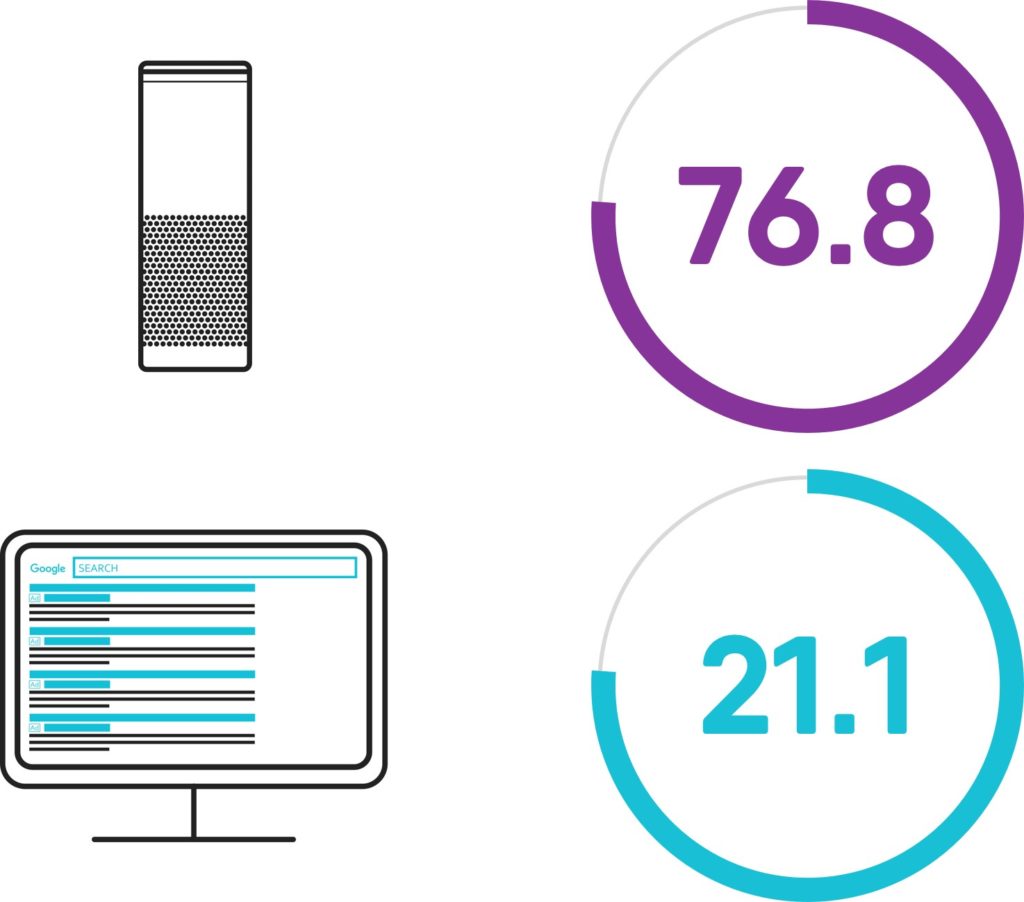
A comprehensive SEO program is the best way to increase your domain authority and amplify your voice search optimization efforts. To learn how to improve your SEO strategy, check out this blog post – SEO Fundamentals: What is SEO and How Does It Work?
No. 3: More than 70 percent of Google Home results were from HTTPS (secure) webpages
If you follow Google’s webmaster guidelines, this voice search optimization finding should make a lot of sense. In July 2018, Google announced it would start marking all non-HTTPS sites on their Chrome browser as “not secure.” This change is almost guaranteed to affect search rankings.
HTTPS adoption: voice search vs. desktop search result pages
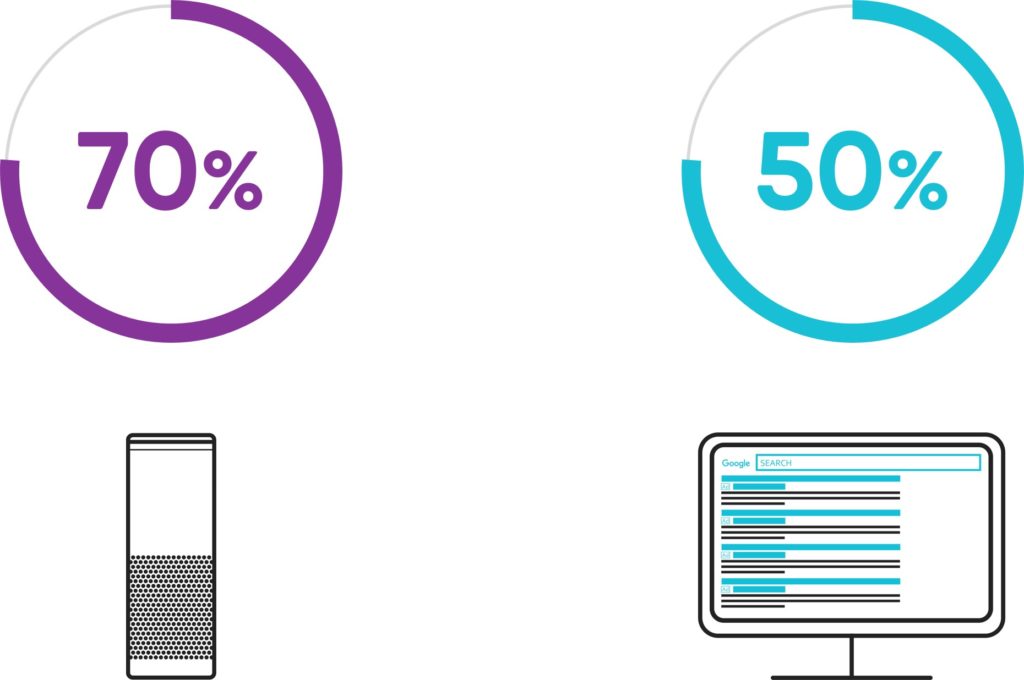
No. 4: Content that’s frequently mentioned or shared on social media tends to appear more in Google Home results
According to the study, an average voice search result has around 1,200 Facebook shares or 44 tweets. Backlinko was careful to note that Google does not include social signals in its ranking algorithm. Therefore, social media popularity is likely a case of correlation, not causation.
Average social shares of voice search result pages
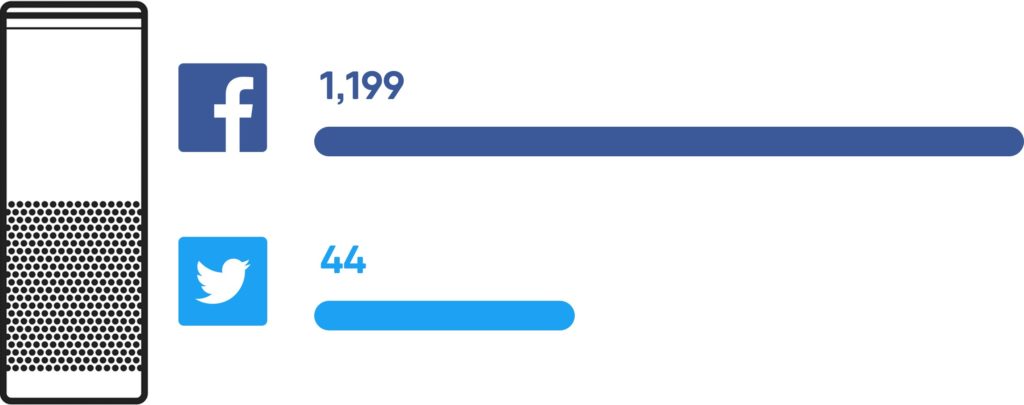
Check out this blog to learn how you can get more social media exposure out of your content: How to Fuel Your Social Media Pipeline.
No. 5: Content that appears higher in desktop search results is more likely to appear in voice searches
A staggering 75 percent of voice search results from Google Home also rank in the top 3 positions in desktop searches. The most likely reason for this is that Google uses similar ranking factors to determine both voice search and desktop results.
Where voice search results tend to rank in Google desktop search results
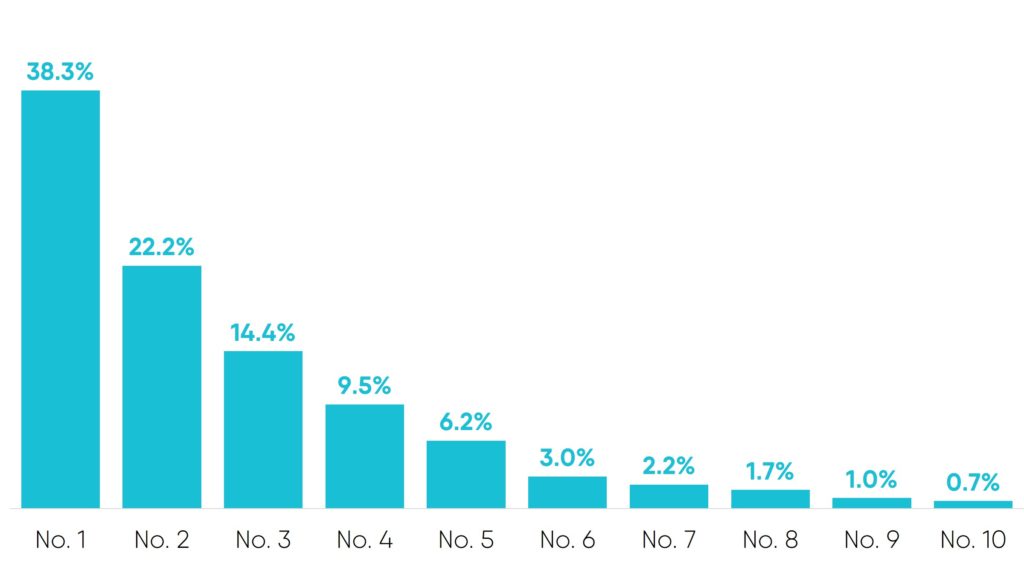
To get a better idea of what you need to do to improve your overall search rankings, check out our recent post: 10 Reasons Why Your Brand Needs a More Competitive SEO Strategy.
These are just some of the most important voice search optimization factors. As virtual assistants and voice search increase in popularity, there will likely be more updates to the ranking factors in the future. For now, this list is a great starting point for your voice search optimization efforts. If you need additional guidance to reach consumers searching on smart speakers, contact Mindstream Media Group today, and our content and SEO experts will be happy to help.
This post was originally published in March 2018. We’ve updated the stats and information to make sure you have the latest voice search optimization tips.
More from Mindstream Media Group

Meet the Mindstreamer – Chandler Swanner
Chandler Swanner’s interest in advertising dates back to her childhood. Her mother (and role model in life) was a Media […]

Third-Party Cookie Phase-Out: What Marketers Need to Know
Cookies are an essential part of internet usage, allowing websites to remember you and provide a more personalized experience. This […]

Meet the Mindstreamer – Kaya Bucarile
She plans and oversees media strategy for agency clients, working closely with project and platform managers to ensure that we […]
